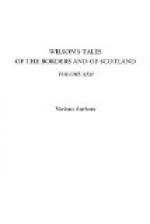“And why this suppression and secrecy, Walter?” she asked. “How could you know,” she continued, as she held down her head, “that I would be adverse to your wishes; nay, that I was not even in the same condition as yourself?”
“Surely you do not mean to say that?” he cried, with something like the rapture of one relieved by pleasure from pain. “I am not worthy even of the suspicion that you speak according to the bidding of your heart. Have I not watched your looks, and penetrated into your eyes, to ascertain whether I might venture to know my fate, and yet never could discover even the symptom of a return; and then was I not under a conviction that your affections were engaged elsewhere?”
“Where?” asked Rachel, with a look of surprise.
“We are apparently drifting into confessions,” responded he. “I may say that I never could construe your visits to Paul, the ingenious artist, merely as dictated by admiration of his wonderful genius.”
“You do not know that Paul is the son of my mother’s sister,” replied she. “Your uncle knows; but there may be reasons why you don’t.”
“Then I am relieved,” was the lover’s ejaculation, in a tone as if he had got quit of a great burden.
“Yes, that is the truth,” continued she; “but I also confess that I have been attracted to his small dark workshop by the exquisite curiosities of art on which he is so often engaged, and which, by occupying so much of his time, keep him poor. It was only yesterday I saw on his bench a locket which seems to transcend all his prior efforts.”
The young man smiled and nodded. What could he mean? Why was he not dumbfoundered?
“It is in the shape of a heart,” she continued; “and upon touching a spring there fly up two tiny figures, which, with fluttering wings, seem to devour each other with kisses.”
Words which forced themselves out of her in spite of her shyness, but which she could not follow up by more than a side-look at her admirer.
“And upon which,” said he, still smiling, “there is engraven the inscription, ‘From Walter Grierson to Agnes Ainslie.’”
“Yes,” sighed Rachel, “the very words. I read them again and again, and could scarcely believe my eyes.”
“And well you might not,” said he; “but your simple heart has never yet informed you that love finds out strange inventions. I have been guilty of a ruse d’amour, for which I beg your pardon. Knowing that you were in the habit of visiting Paul’s workroom, and seeing all the work of his cunning fingers, I got him to make the locket out of a piece of gold I got from my uncle, and the inscription was,”—and here he paused as if to watch her expression,—“yes, designed, to quicken your affection for me by awakening jealousy. I confess it. Agnes Ainslie was and is nothing to me; and I used her name merely because I thought that you would view her as a likely rival.”
“Can all this be true?” muttered Rachel to herself, as the wish to believe was pursued by the doubt which revolted against a departure from all natural and rational actions.




